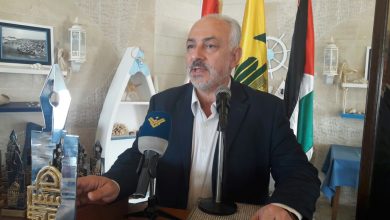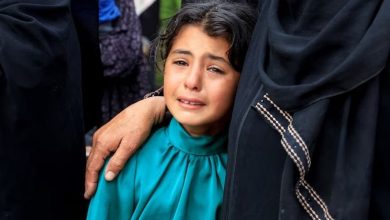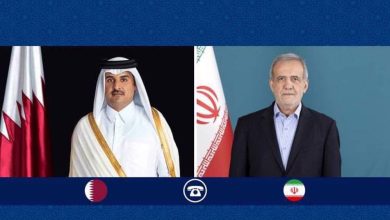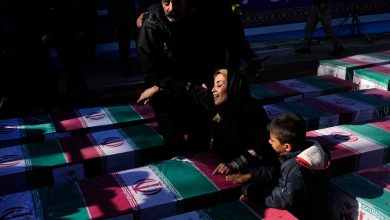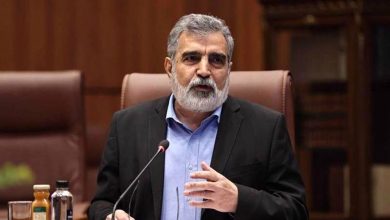Hamas Releases List of Detainees, Asserts “Freedom of Movement” in Gaza Following Second Prisoner Swap
The Islamic Resistance Movement, known as Hamas, declared that commencing Saturday, the seventh day since the onset of the ongoing conflict...

The military spokesperson for the Al-Qassam Brigades, Abu Obeida, announced that, as part of the Al-Aqsa Flood Deal concerning the exchange of prisoners, the brigade will release several female soldiers on Saturday, January 25, 2025.
1- Private Karina Arif
2- Private Danielle Gilboa
3- Private Naama Levy
4- Private Liri Elbag
UN Reports Surge in Aid Deliveries to Gaza
On the sixth day of the ceasefire, the United Nations Office for the Coordination of Humanitarian Affairs (OCHA) reported that 653 aid trucks entered Gaza in 24 hours. OCHA highlighted that aid shipments and workers are now reaching previously inaccessible areas, significantly improving relief efforts.
Second Phase of Prisoner Exchange Underway
Abu Obeida, the military spokesman for the Al-Qassam Brigades posted that, within the framework of the Al-Aqsa Flood Deal for prisoner exchange, the Al-Qassam Brigades decided to release the following female soldiers tomorrow, Saturday, corresponding to 01-25-2025:
1-Soldier Karina Arif
2-Soldier Danielle Gilboa
3-Soldier Naama Levy
4-Soldier Liri Elbag
Israeli Channel 14 had reported that Hamas would provide the Israeli enemy with a list of prisoners on Friday to be released the next day. In the second phase of the exchange, Hamas would release four Zionist detainees, including three soldiers, in return for 180 Palestinian prisoners.
Israeli Enemy to Release 290 Palestinian Prisoners
Israeli media reported that 200 of the Palestinian prisoners set to be released in the first phase of the exchange deal are serving life sentences. The prisoners, accused of participating in attacks that caused Zionist casualties, will be deported to Gaza or other unspecified countries. Their names remain undisclosed.
According to reports, a total of approximately 290 Palestinian prisoners serving life sentences will be released in this phase of the deal.
Trump Highlights Ceasefire in Gaza
US President Donald Trump underscored the importance of preserving the Gaza ceasefire, cautioning that its breakdown could cause serious problems. Speaking at the Davos Forum, Trump claimed that his administration had been instrumental in facilitating Middle East ceasefire negotiations, asserting that the agreement would not have been achieved without his team’s efforts.
Meanwhile, Zionist Prime Minister Benjamin Netanyahu reaffirmed his commitment to securing the return of all Israeli prisoners held in Gaza. During a video call with the families of three Israeli women recently released as part of the first phase of the prisoner exchange deal, Netanyahu vowed to continue efforts to ensure the release of the remaining detainees.
Meanwhile, Zionist Prime Minister Benjamin Netanyahu reaffirmed his commitment to securing the return of all Israeli prisoners held in Gaza. During a video call with the families of three Israeli women recently released as part of the first phase of the prisoner exchange deal, Netanyahu vowed to continue efforts to ensure the release of the remaining detainees.
The families conveyed a message from the freed detainees, urging the government to press ahead with the deal, stating that doing so would provide “strength and healing” to them and Israeli society as a whole.
Protests in Tel Aviv Over Prisoner Exchange and Judicial Reforms
Hundreds of Zionists gathered outside the Ministry of War in the occupied city of Tel Aviv to demand the completion of all phases of the prisoner exchange deal to secure the return of detainees from Gaza.
The demonstration also voiced strong opposition to recent actions by the so-called Justice Minister Yariv Levin, who has resumed efforts to implement controversial judicial reforms. Protesters argued that the reforms undermine the principle of separation of powers and weaken the judiciary’s independence.
The demonstrators pledged to continue their protests until all Israeli prisoners held in Gaza are returned.



